Publications in peer-reviewed journals
- Goldwert, D., Vlasceanu, M., Pizziol, V., et al. (2026). A Megastudy of Behavioral Interventions to Catalyze Public, Political, and Financial Climate Advocacy. PNAS Nexus. 5(1), pgaf400.
- Capraro, V., Di Paolo, R., Pizziol, V. (2025). A publicly available benchmark for assessing Large Language Models’ ability to predict how humans balance self-interest and the interest of others. Scientific Reports. 15(1), 21428.
- Catola, M., D’Alessandro, S., Guarnieri, P., Pizziol, V. (2025). Norms and Efficiency in a Multi-Group Society: An Online Experiment. Journal of Public Economic Theory, 27(1), e70010.
- Catola, M., Guarnieri, P., Pizziol, V., Rapallini, C. (2024). Measuring the attitude towards a European public budget: A cross-country experiment. Journal of Comparative Economics, 52(4), 963-979. [ DATA & MATERIALS ]
- Pizziol, V., & Tavoni, A. (2024). From niches to norms: the promise of social tipping interventions to scale climate action. npj Climate Action, 3(1), 1-8.
- Capraro, V., Di Paolo, R., Perc, M., Pizziol, V. (2024). Language-based game theory in the age of artificial intelligence. Journal of the Royal Society Interface, 21, 20230720. [ DATA & MATERIALS ]
- Bilancini, E., Boncinelli, L., Nardi, C., Pizziol, V. (2024). Cooperation is unaffected by the threat of severe adverse events in public goods games. Journal of Behavioral and Experimental Economics, 108, 102145.
- Pizziol, V., Demaj, X., Di Paolo, R., Capraro, V. (2023). Political ideology and generosity around the globe. Proceedings of the National Academy of Sciences, 120 (15), e2219676120. [ DATA & MATERIALS ]
- Catola, M., D’Alessandro, S., Guarnieri, P., Pizziol, V. (2023). Multilevel Public Goods Game: Levelling up, Substitution and Crowding-in Effects. Journal of Economic Psychology, 97, 102626. [ DATA & MATERIALS ]
- Di Paolo, R., & Pizziol, V. (2023). Gamification and Sustainable Water Use: The Case of the BLUTUBE Educational Program. Simulation & Gaming, 10468781231181652.
- Bilancini, E., Boncinelli, L., Di Paolo, R., Menicagli, D., Pizziol, V., Ricciardi, E., Serti, F. (2022). Prosocial behavior in emergencies: Evidence from blood donors recruitment and retention during the COVID-19 pandemic. Social Science & Medicine, 314, 115438.
- Catola, M., D’Alessandro, S., Guarnieri, P., Pizziol, V. (2021). Personal norms in the online public good game. Economics Letters, 207, 110024.
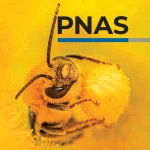
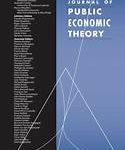
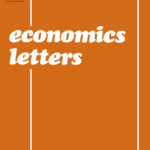
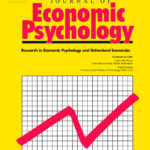
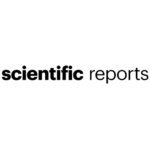
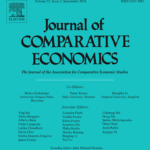
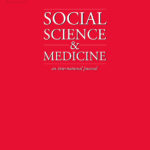
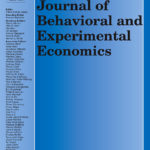
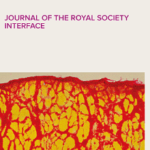
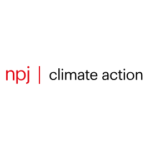
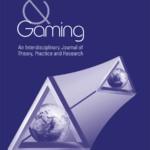
Working papers
- Language and Economic Decisions (with V. Capraro, R. Di Paolo).
- Framing Climate Change as a Structural Problem Reduces Personal Efficacy and Intentions to Engage in Individual Action (with S. Constantino, J. Kim, M. Casari, A. Tavoni).
- Framing Is Shaping in Cooperation Dilemmas: Provision, Maintenance, and Harm Restraint Are Not the Same (with E. Bilancini, L. Boncinelli, T. Celadin).
- Voluntary contributions to risky multilevel public goods with heterogeneous returns (with F. Cerniglia, R. Longaretti, C. Nardi).
- Collaboration, Digital Game-Based Learning, and Financial Literacy: Evidence from a Randomized Experiment (with M. Bisanti, R. Di Paolo, S. Accardi, F. Maggi, G. Paladino, E. Bilancini, E. Ricciardi).
Work in progress
- A Laboratory Experiment on Virtual Sharing Energy Communities (with D. Llerena, B. Roussillon, B. Wieczorek).
- Authority (with E. Fehr, H. Larreguy, D. Schunk).
- The Role of Source of Power in the Public Bad Game (with E. Bilancini, F. Scarparo).
- A multilevel public goods game with risky marginal returns and the role of relationship closeness (with F. Cerniglia, R. Longaretti, C. Nardi).
- Norms in a risky multilevel public goods experiment (with G. Del Mastio, C. Nardi)
Book chapters, Conference papers, Editorial articles
- 1 chapter in Vocabulary for Sustainable Consumption and Lifestyles: A Language for Our Common Future (2025).
- Di Paolo, R., Bisanti, M., Chiarello, F., Di Guida, S., Pizziol, V. (2024). Games-based learning for social change. Frontiers in Education, 9, 1403695.
- 3 chapters in New Frontiers in Gaming (2022).
- Bisanti, M., Di Paolo, R., Pizziol, V., Accardi, S., Maggi, F., Paladino, G., Ricciardi, E., Bilancini, E. (2022). Digital Escape Games in Educational Programs for Financial Literacy. European Conference on Games Based Learning. Vol. 16, No. 1, pp. 666-674.